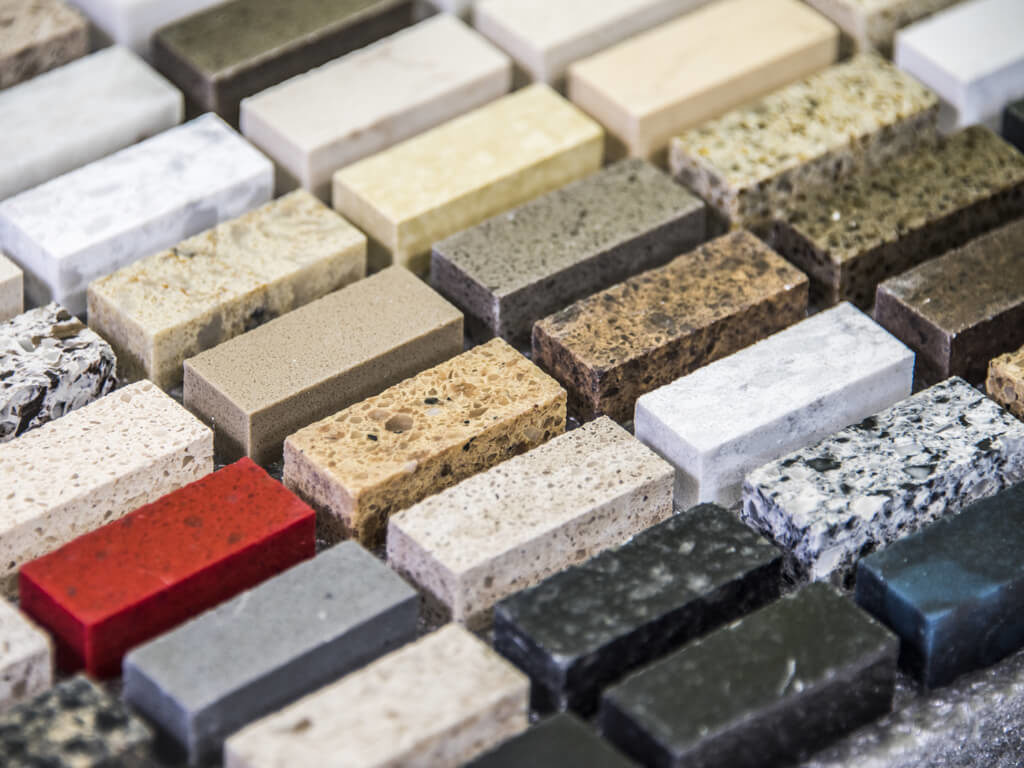Understanding the Differences Between Granite, Marble, and Quartz
Helping to enable easier decision making for home owners
As a home owner, there are several choices when it comes to updating your countertops. Understanding which one is best for your home can be confusing if you aren’t immersed in the world of natural stone on a regular basis. We want you to love your choice and your space. As such, we’ve put together an easy to understand list of the differences between granite, marble, and quartz to help you make an informed decision
Granite
Granite is one of the most popular choices for countertop upgrades for home owners. The stone is durable and has a timeless, natural beauty. One of the most popular uses of granite in the United States is kitchen countertops.
Granite is resistant to heat, stains, and scratches making the material ideal for busy kitchens. It is so resistant to heat, that pans from the stove can be placed on it without leaving burn marks. Although, we do not recommend making this a habit. Additionally, it is also only second to a diamond in terms of hardness of natural materials. Granite should be properly sealed to keep spills from penetrating the surface and to resist bacteria. Be careful to avoid acidic substances or harsh chemicals as they can dull the shine or leave etching in the stone.
Granite is formed from molten lava deep in the earth’s crush. As the lava cools, it crystalizes forming speckles and grains of color. Granite is a natural stone.

Marble
Popularity of marble has seen its share of ups and downs. Marble offers a classic elegance with its richly veined appearance. Each piece is unique. As with granite, this stone is most often found in kitchens and bathrooms. However, even with this appeal, marble has durability issues to be aware of.
Marble is more porous than granite and therefore will stain easily unless properly sealed and cleaned with attention. With this type of natural stone, it does require resealing each year. Marble is also known to scratch more easily than granite. It can also be chipped or cracked more easily with the weight of heavier items. And, worth mentioning, it is often more expensive than granite. Marble is heat resistant, however, is more often recommended for use outside of the kitchen (e.g., locations where the surface won’t get heavy use).
Marble is a natural stone formed when limestone crystalizes as it is exposed to high temperatures and pressures. Most marbles come from Italy, Spain, Greece, Turkey and other Mediterranean areas.
Quartz
Quartz is known as one of the toughest countertop materials available. This is not a natural stone, but engineered (e.g., man-made). As such, it offers several additional color choices when compared to granite or marble.
Quartz countertops do not need to be sealed as they are non-porous and resistant to staining and bacteria. Quartz is a hard surface resistant to scratching and chipping. It is not as resistant to heat as granite (e.g, hot pans should not be placed directly on the surface) and often comes with the largest price tag. Finally, unlike natural stone, extended exposure to sunlight will cause fading.
As an engineered product, this stone consists of approximately 93% quartz and the remaining 7% is binder materials, such as polyester resin, and added color. Sometimes, small particles of glass or reflective metallic flakes are added to the mix to achieve unique designs.
Quartz delivers outstanding durability with easy maintenance. Overall, for customers looking for a premium product for their home, the pros of quartz often outweigh the perceived cons.
Want to Know More ?
If you have any questions, please visit our website or give us a call. For answers to some frequently asked questions, check out our FAQ page.
